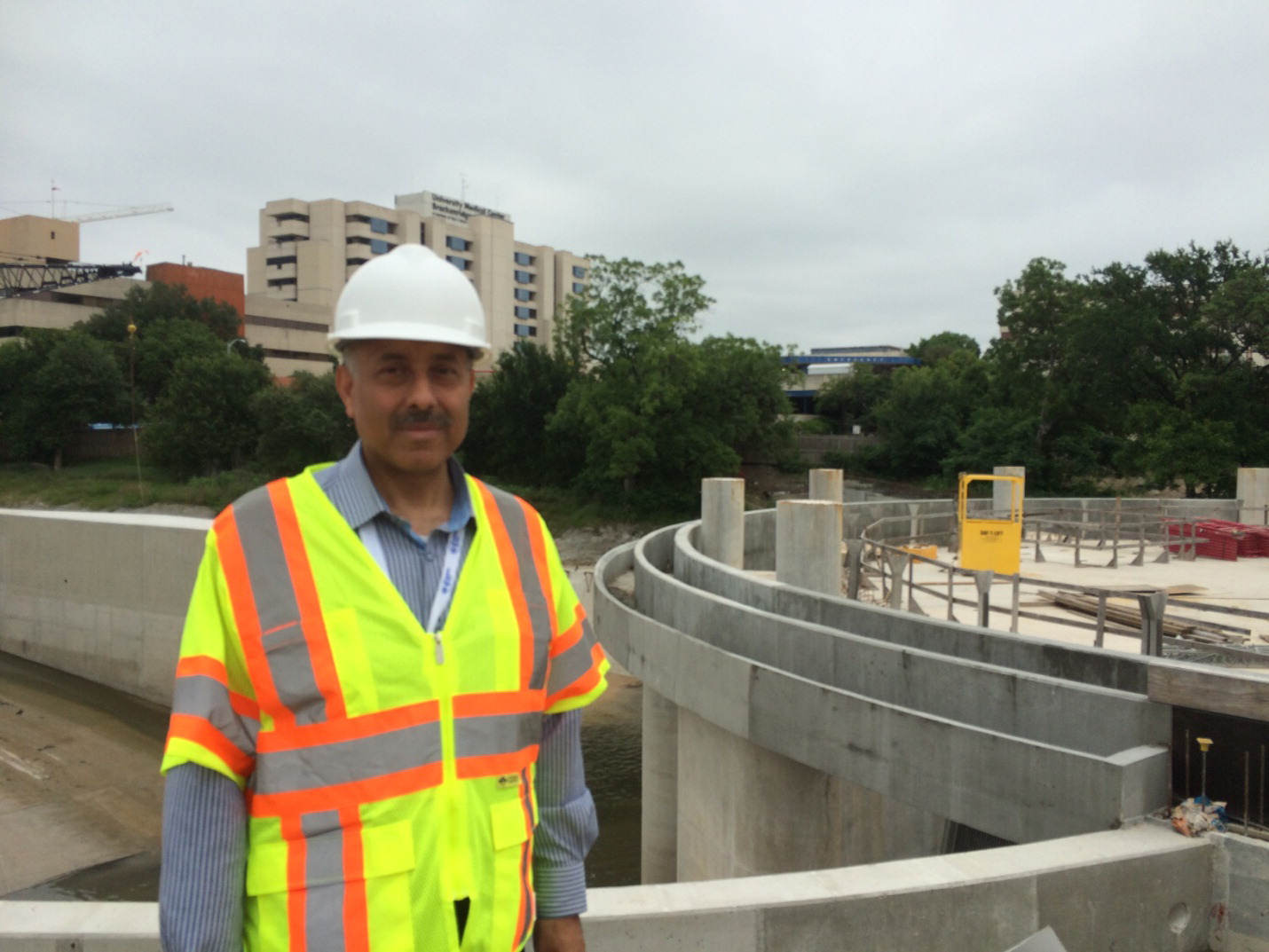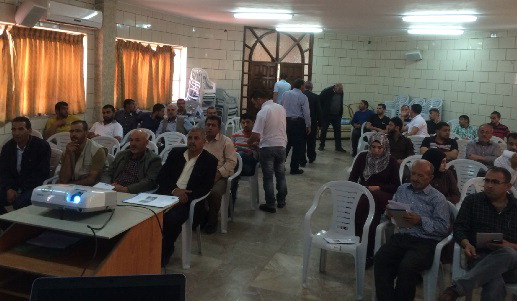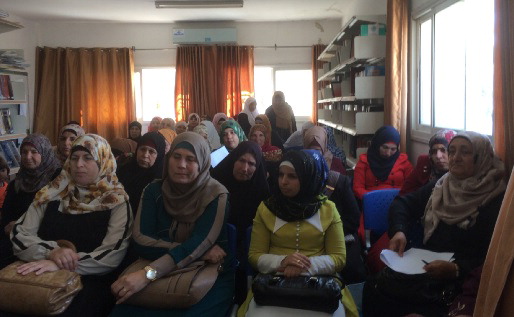|
|
Cycle 2 (2012 Deadline)
Rainwater harvesting analysis using Water Harvesting Evaluation Tool PI: Issam Al-Khatib (Birzeit University) U.S. Partners: Defne S. Apul (University of Toledo) and Steve Burian (University of Utah)
Project Dates: December 2013 to June 2017 
Dr. Al-Khatib during his U.S. program visit in May 2015. |
Project Overview
Rapid population growth and political issues associated with control over Palestinian water and land resources have exacerbated problems of water supply and management. Many Palestinian localities in the West Bank suffer from shortages of domestic and agricultural water mainly during the summer months, when the water shortage makes everything difficult. Water scarcity can be considered as a major constraint for economic and social development and sustainability of the domestic and agricultural sector in the West Bank. Rainwater harvesting systems (RWH) can play an important role in creating a realistic and sustainable environment in the future. Their use in drinking, domestic, and agricultural sectors not only compensates for the shortage of water but also reduces the chances of severe floods causing widespread damage.
The aim of this project was to analyze the different aspects of rainwater harvesting through the development of a Water Harvesting Evaluation Tool (WHEAT), which is a new and extensible sustainability modeling and analysis framework. The data, models, results, and developed relations produced in all tasks (i.e., assessment of socioeconomic and water-related topics at household and community scale and hydrological assessment within the community boundaries and adjacent watersheds) were integrated in WHEAT. This tool was then applied to assess the impact of any intervention on the water sector in the target community, including water, economy, and social impacts. Final Summary of Project Activities
The project was successfully completed in June 2017. It developed the Water Harvesting Evaluation Tool (WHEAT) and manual in Arabic, which have been utilized in multiple courses at Palestinian universities, as well as guidelines for rainwater harvesting at the household level. A total of 6,000 copies have been printed and around 4,000 copies have been distributed to different Palestinian individuals, ministries, institutions, NGOs, schools, university students, women's associations, etc. Additionally, four Master's students graduated thanks to support from this project, and the team developed and submitted six manuscripts for publication.
A solid understanding of competitiveness and importance of investing in the rainwater harvesting (RWH) and sanitation sector as a means to enhance livelihoods and business opportunities in rural areas was successfully achieved among both local residents and policy makers in the study area and other Palestinian areas, as most of actions, including the 14 training workshops (almost 1000 people trained) conducted, the development of the guidelines for rainwater harvesting at the household level, and the Palestinian Conference on Rainwater Harvesting and Management activities, were implemented with participation and involvement of policy makers from different levels. The guidelines were adopted by the policy makers at Ministry of Local Government, the Ministry of Education and Higher Education, Palestinian Water Authority and the Environment Quality Authority. The understanding of local authorities of the importance of efficient and sustainable RWH reportedly increased, as many of them participated in all activity actions. This is anticipated to contribute to the reduction of water and sanitation related diseases among residents in the target area. The implemented training workshops will have an impact on building, locality and storm water infrastructure design and analysis. The results of this activity are anticipated to give the population the incentive to harvest rain water based on the scientific bases. The results of this activity were of interest to the Palestinian Water Authority, Ministry of Local Government, municipalities, local councils, and hydrology professionals in the West Bank, as they were involved in the different stages of activity implementation. The government is currently considering tax exemptions for those who establish rainwater cisterns. Publications
Issam A. Al-Khatib, Hamzeh Al Zabadi, and Ghassan Saffarini. 2017. Radon in Harvested Rainwater at the Household Level, Palestine. Journal of Environmental Radioactivity 169–170: 192-196. https://doi.org/10.1016/j.jenvrad.2017.01.014
I. Celik, L.M. Tamimi, I.A. Al-Khatib, et al. 2017. Management of rainwater harvesting and its impact on the health of people in the Middle East: case study from Yatta town, Palestine. Environ Monit Assess 189: 271. https://doi.org/10.1007/s10661-017-5970-y  |  | | Participants at the rainwater harvesting workshops organized by the project team to discuss techniques of water harvesting and conservation (photo credit: Dr. Al-Khatib). |
|
|
|
|






